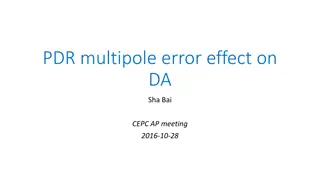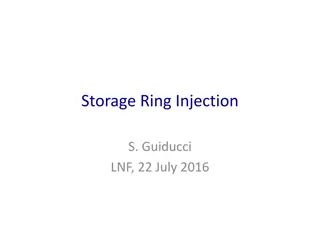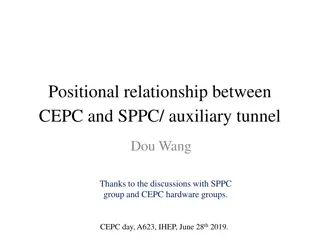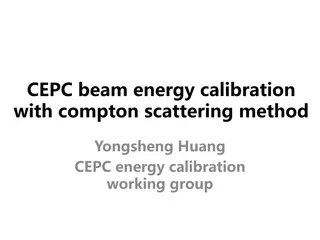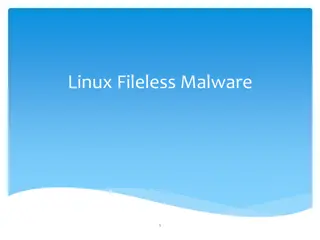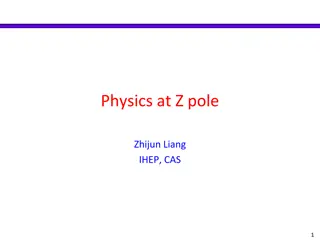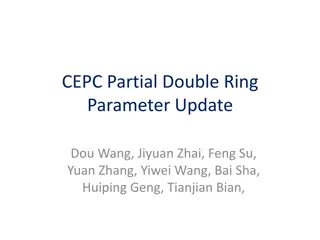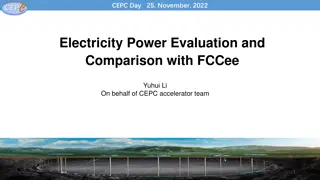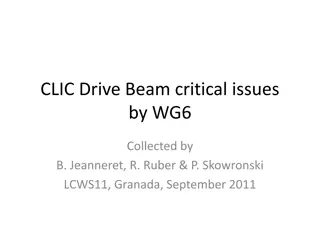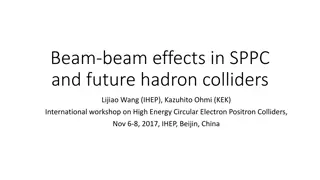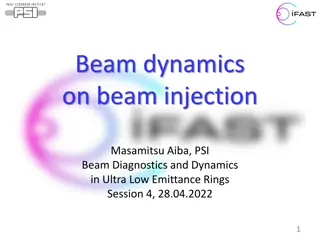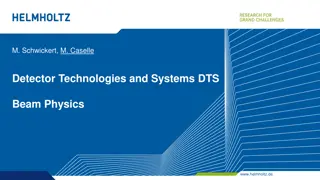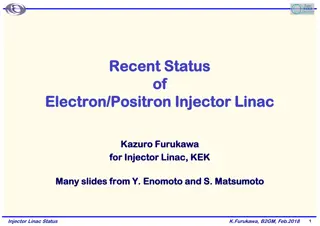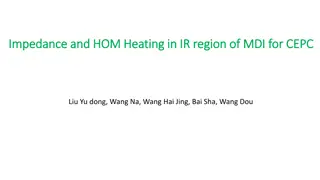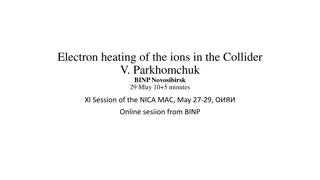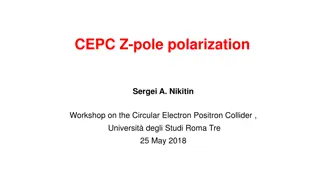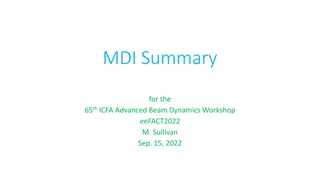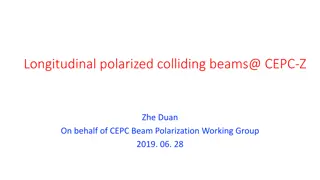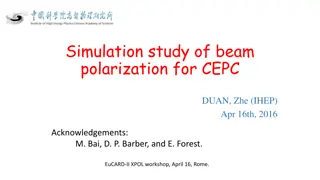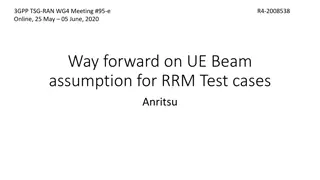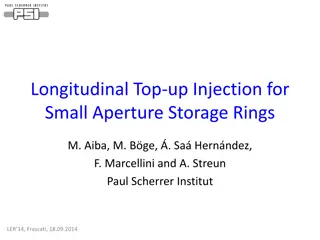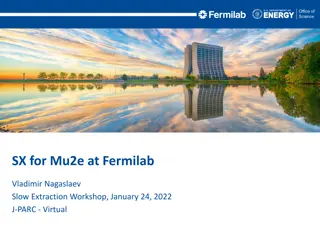Understanding Beam Lifetime and Injection Considerations at CEPC
Delve into the intricacies of beam lifetime and injection considerations at the CEPC, exploring topics such as beam-gas scattering, quantum lifetime, Touschek lifetime, and injection modes. Discover the crucial factors affecting beam stability and injection efficiency in particle accelerators.
Download Presentation

Please find below an Image/Link to download the presentation.
The content on the website is provided AS IS for your information and personal use only. It may not be sold, licensed, or shared on other websites without obtaining consent from the author. Download presentation by click this link. If you encounter any issues during the download, it is possible that the publisher has removed the file from their server.
E N D
Presentation Transcript
Beam Lifetime and Injection Considerations of CEPC Speaker: Cui Xiaohao 2014.10.10 55th ICFA Advanced Beam Dynamics Workshop
Beam lifetime Beam-Gas Scattering quantum lifetime Radiative BhaBha Beamstrahlung Touschek lifetime
Beam Gas Scattering In Our calcuation, the vacuum pressure is supposed to be 1E-8 Torr, and the gas is composed of 80% H2, 20% CO Lifetime Unit Elastic H2 189 hours Elastic CO 15 hours Inelastic H2 149 hours Inelastic CO 14 hours
quantum lifetime lifetime Units Transverse 2218 hours Longitudinal Inf Radiative BhaBha and Beamstrahlung lifetime Units Radiative BhaBha 51 mins Beamstrahlung (Simulation) 80 mins
Touschek lifetime lifetime Units 2% Energy acceptance 2500 hours 1% Energy acceptance 530 hours Total lifetime ~ 30 mins 1/ = Total 1/ i
Injection Considerations Introduction Time Structure Geometrical Arrangement Injection Mode Bump Height and Acceptance Possible magnet strength Work to be done
Introduction Energy Ramp 6 ->120GeV Electron 6 GeV Linac Booster Positron Collider 120 GeV
Main Collider Booster Energy (GeV) 120 6 ->120 Circumference (Km) 50 50 Bunch Number 50 50 Emittance x/y (nm.rad) 6.8/0.02 24/ Life time (min) 30 Beam Current (mA) 16.9 0.84
Injection time structure Lifetime Lum Drop Booster Bunch harge Injection period 30 Mins 10% 2.7 nC 90 s Injection period Injection time ~10s
Injection period Injection into the booster Ramp Up Injection time Injection into the main collider Ramp Down
For injection from zero current, higher injection frequency is needed, 60s for instance I/Ipeak It takes 30 mins to reach the peak current ! Time(min)
Geometrical Arrangement Booster Booster 2 m Collider Main Collider
Injection Mode: Betatron Injection Injected Beam Circulating Beam Closed orbit kickers Three Kickers are added in the circulating ring
Septum Kicker Twiss Parameters of the injection region
Bump Height and Acceptance Bumped Stored beam Injected beam Septum Acceptance 5 xc 5 xi X B = 10 xi+ S X 5 xc+ 5 xi+ S
Bump height> 10 x+S Distance between injected beam and circulating beam> 5 xc+5 xi+S Acceptance length> 5 xc+10 xi+S For ??= 6.9 10 9,??= 2.1 10 11, S=4mm, Beta function ~80m, we can get bump height > 12mm Acceptance length > 15 mm
Possible magnet strength Kicker strength For Beta function ~80m Bump height 20mm,kicker length 2m,then the strength of the kickers are about 500 Gauss Septum strength If the Septum is 20m, the strength needed is much higher. As a result, we tried to use 4 separate septum instead of a single one. Their magnet strength are: 0.64T, 0.32T, 0.16T, 0.08T and their thickness are 16mm,8mm,4mm,2mm separately.
Work to be Done Detector considerations: Protection of the detector, detector veto Detailed injection Simulation : Kickers, septa, phase advances optimization, injection efficiency, back ground, apertures Effect of errors: Betatron mismatch, alignment errors, kicker strength and timing matching


